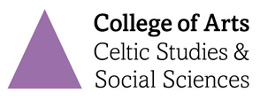THIS poem in its most external and most continuous symbolism is an effort to follow the labours and struggles of the creative artist.
The Storyteller is the imagination of Prometheus. Prometheus sees the things that are. The Storyteller sees, across the things that are, the things that may be. Prometheus, the natural man, loves the beauty of the world round him and sings of those things which rouse his emotion at the time. The Storyteller sees in the beauty round him stimulant which urges him to create new beauty, or material with which to build it. The coloured light of the sunrise and sunset is his inspiration for the creation of fire; flowers and trees, winds and water and birds, are among the things from which he draws materials to build his dream of fire which movement and song, persisting, force out of dream into reality.
The ‘voices’ in the poem have more or less the same uses as the ‘chorus’ in the Greek play, but their uses are more varied than those of the chorus, and they are perhaps less homogeneous. They describe and explain the action of the poem. They elaborate the emotion – sometimes giving from an objective point of view what Prometheus or the Storyteller have expressed subjectively. They give advice and warning, and make comments, not from any particular personal point of view, but such as might come from the world outside. They describe changes in the time or aspect of day and night and of season and weather. These changes are sometimes directly connected with the action of the poem, and sometimes they are not directly connected, but run along by it as a sort of accompaniment sympathising with its moods.




